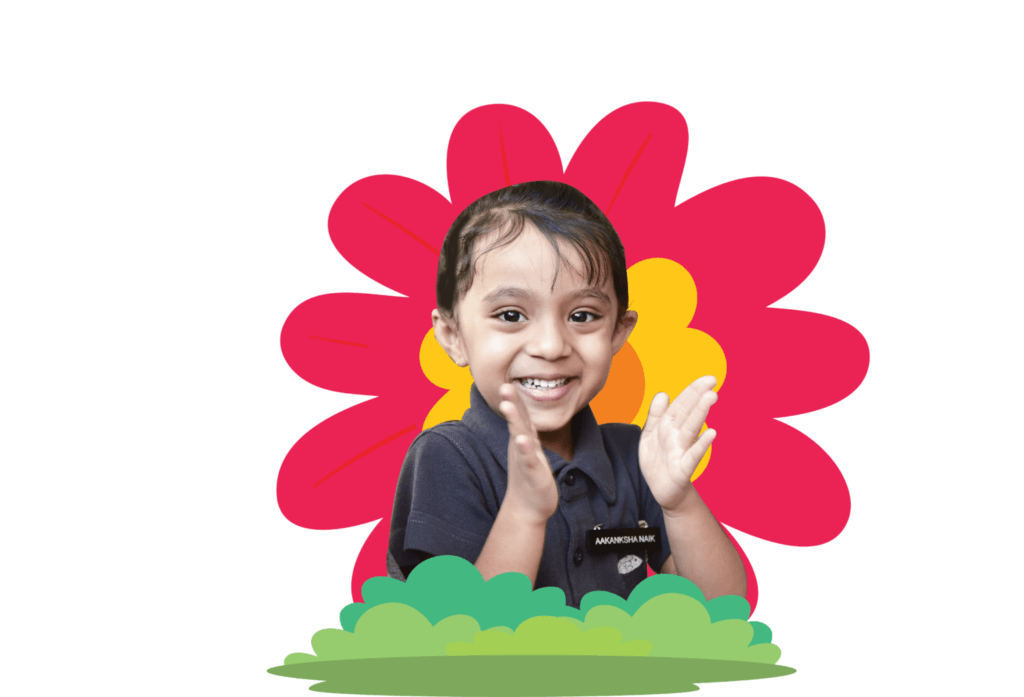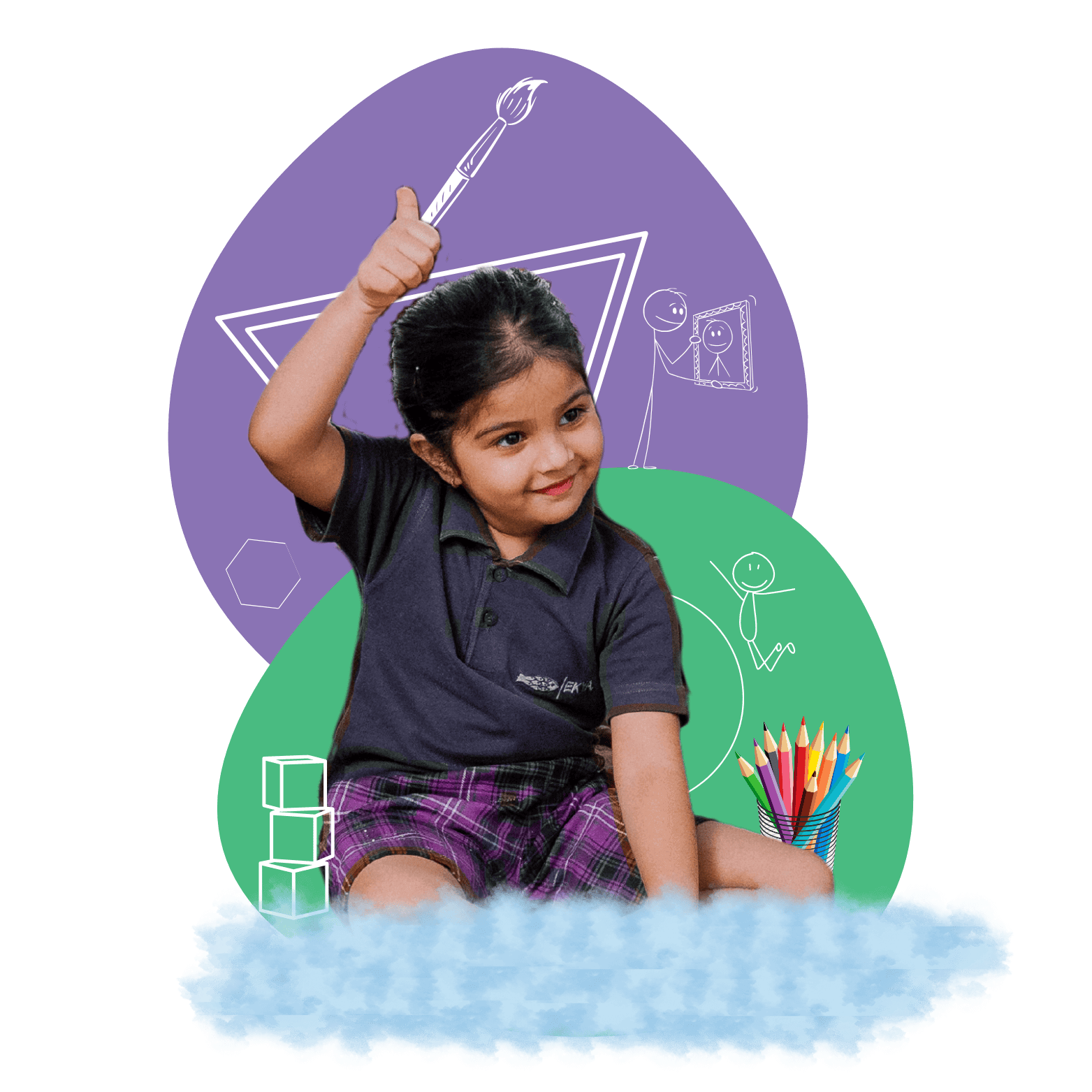Warning: Undefined array key "file" in /home/u261135033/domains/ekyaearlyyears.com/public_html/wp-includes/media.php on line 1788
Montessori Sub-Junior

The Montessori Sub-Junior Program is designed for children aged 3 to 4 years, building upon the foundation established in the Beginners Program. This program continues to provide a nurturing and enriching environment that supports children’s holistic development and prepares them for the next stage of their learning journey.

Program Overview
The Sub-Junior Program focuses on reinforcing foundational skills, introducing more advanced concepts, and fostering independence and self-confidence. Children engage in a variety of activities that promote practical life skills, sensorial exploration, language development, mathematics, and cultural studies.


Program Objectives
- To reinforce foundational skills and introduce more advanced concepts
- To foster independence, self-confidence, and a sense of responsibility
- To develop social skills and positive behaviour through collaborative learning
- To enhance language and literacy skills through engaging activities
- To build a strong foundation in mathematics and numeracy concepts
- To explore cultural subjects such as geography
Learning Areas
Exercises of Practical Life
Sensorial Exploration
Children explore more advanced sensorial materials, such as the binomial cube and trinomial cube, to further refine their perceptual skills. They engage in activities that promote visual, auditory, tactile, and olfactory discrimination.

Visual Arts
Children are introduced to the world of visual arts through simple activities such as drawing, painting, and collage-making. They explore colours, shapes, and textures while developing their fine motor skills and creativity.

Literacy and Language
Children engage in more advanced language activities, such as rhymes, stories, object and animal boxes, and picture cards, children build their vocabulary and phonemic awareness. They trace sandpaper letters, play sound games, and learn to recognise and write their names. These experiences lay a strong foundation for early reading and communication skills, setting the stage for future academic success.

Performing Arts
Children are exposed to the performing arts through simple activities such as singing, dancing, and storytelling. They engage in group activities that promote social interaction, self-expression, and the development of gross motor skills.

Numeracy and Mathematics
Children explore more complex mathematical concepts, through hands-on activities with number rods, sandpaper numbers, and the spindle box. They match numbers with quantities, count objects, sort, and create patterns. These experiences help children develop a strong number sense and a solid foundation for mathematical thinking. By engaging in practical, meaningful activities, children gain a deep understanding of numerical concepts.
Exercises of Practical Life
Children continue to develop practical life skills through more complex activities such as food preparation, gardening, and care of the environment. They learn to use tools safely and effectively and engage in activities that promote independence and responsibility.
Sensorial Exploration
Children explore more advanced sensorial materials, such as the binomial cube and trinomial cube, to further refine their perceptual skills. They engage in activities that promote visual, auditory, tactile, and olfactory discrimination.

Visual Arts
Children are introduced to the world of visual arts through simple activities such as drawing, painting, and collage-making. They explore colours, shapes, and textures while developing their fine motor skills and creativity.

Literacy and Language
Children engage in more advanced language activities, such as rhymes, stories, object and animal boxes, and picture cards, children build their vocabulary and phonemic awareness. They trace sandpaper letters, play sound games, and learn to recognise and write their names. These experiences lay a strong foundation for early reading and communication skills, setting the stage for future academic success.

Performing Arts
Children are exposed to the performing arts through simple activities such as singing, dancing, and storytelling. They engage in group activities that promote social interaction, self-expression, and the development of gross motor skills.

Numeracy and Mathematics
Children explore more complex mathematical concepts, through hands-on activities with number rods, sandpaper numbers, and the spindle box. They match numbers with quantities, count objects, sort, and create patterns. These experiences help children develop a strong number sense and a solid foundation for mathematical thinking. By engaging in practical, meaningful activities, children gain a deep understanding of numerical concepts.
Continuous Assessment
Our children engage in continuous assessments through carefully designed performance tasks and educators observe their interactions with materials and peers. They provide regular feedback to families and collaborate with them to support the child’s growth and development.

Transition to the Junior Program
The Sub-Junior Program prepares children for the challenges and opportunities of the Junior Program. By the time they complete the program, children will have developed a strong foundation in practical life skills, sensorial exploration, language development, mathematics, and cultural studies. They will have honed their social skills and positive behaviour through collaborative learning and developed a love for learning and exploration.